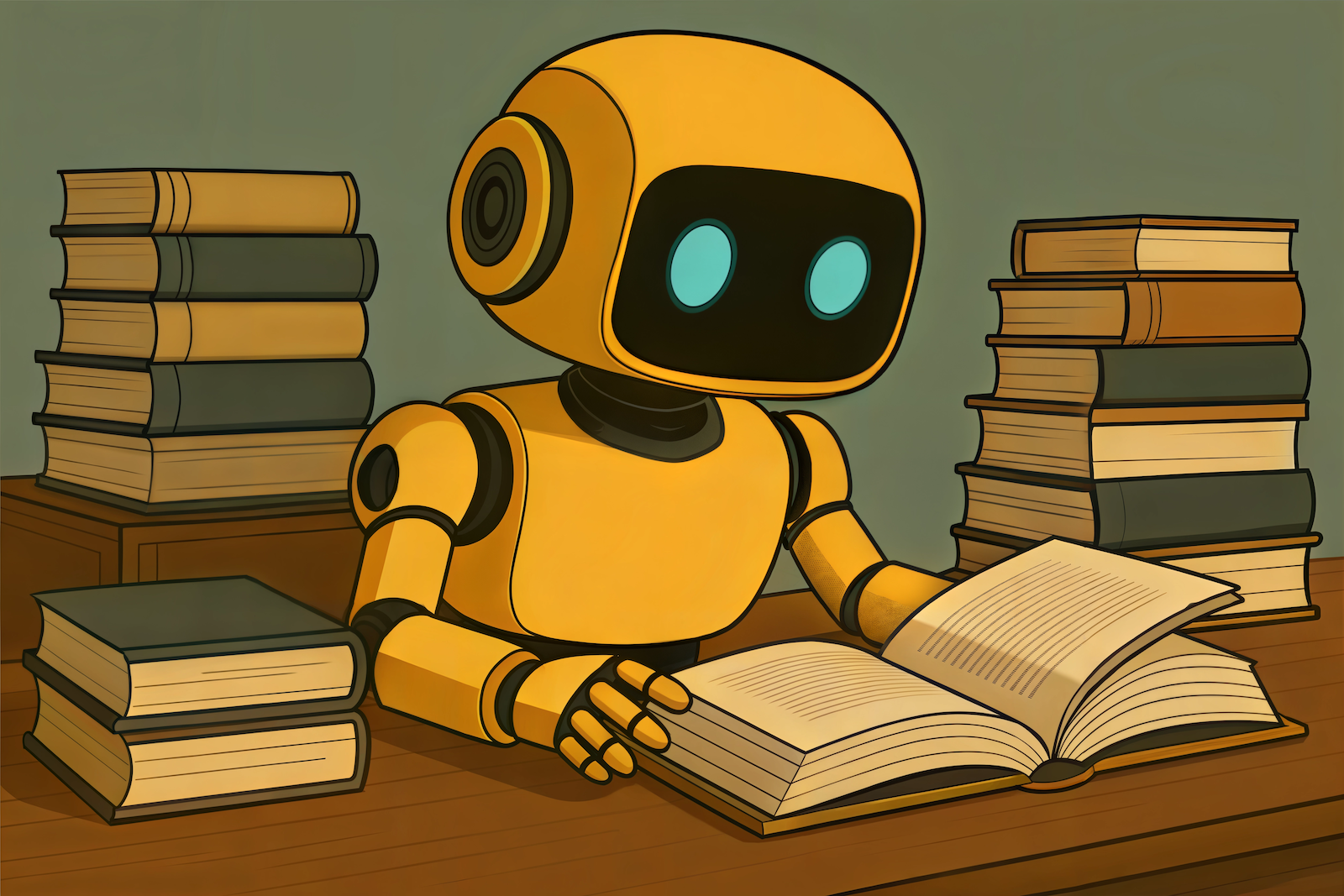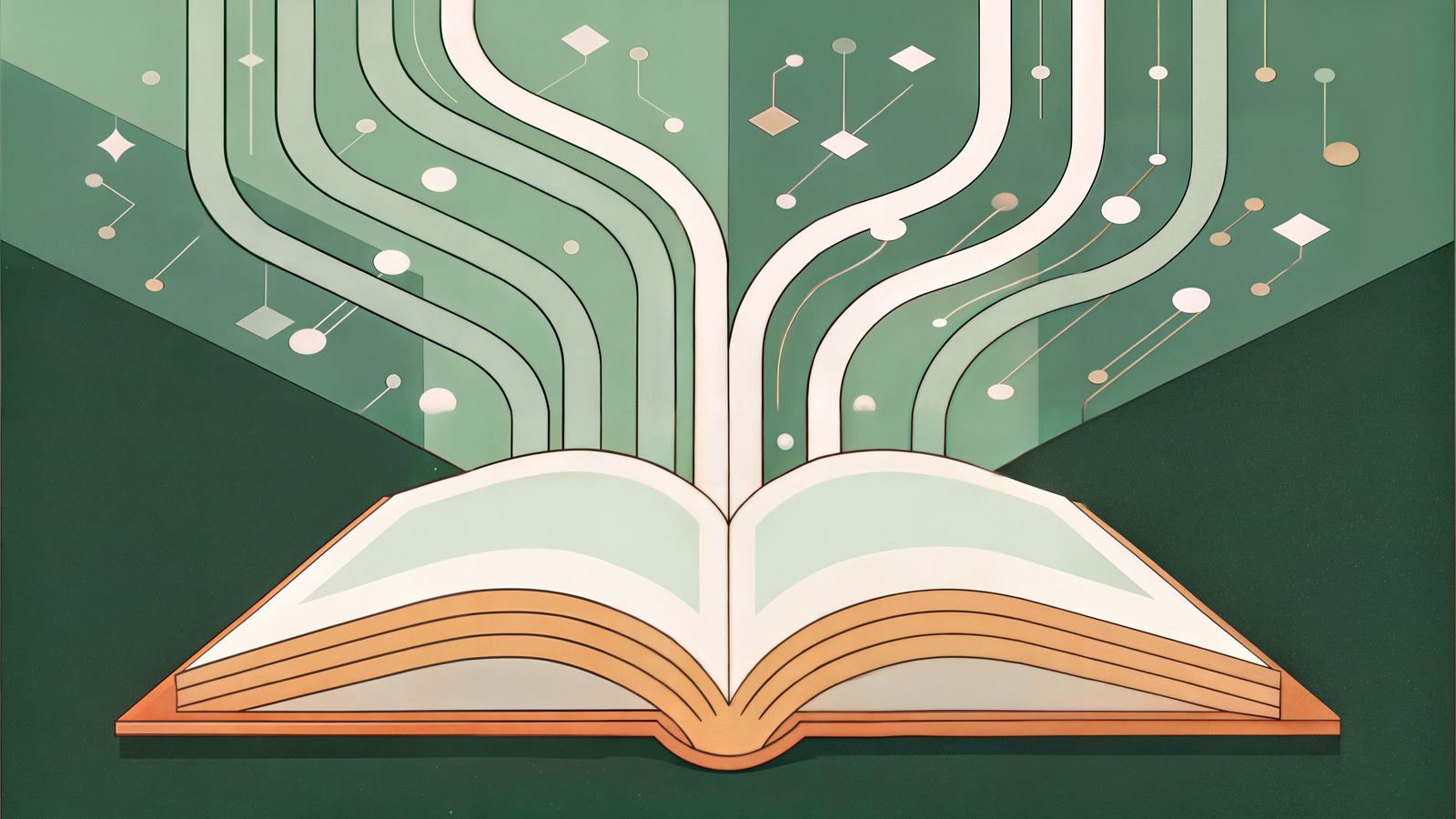A dark future for publishers…if nothing changes
“What do you think book publishing looks like 15–20 years from now?”
This question arose during a conversation I had a while back with a publishing consultant we’ll call “Alex”.
I remember the way Alex hollowly looked at me, then pensively gazed off of the camera while they gathered their thoughts before turning back to me and saying
“Jonathan, I fear unless something changes dramatically, AI is going to eviscerate book publishing.”
I was flabbergasted.
Alex, this incredible publishing techno-sherpa of the last 30 years, who helped the top book publishers navigate the rise of the internet, mobile phones, the dominance of Amazon, the evolution into digital publishing, and now AI, was worried if book publishers would even be around in 15–20 years.
I asked why, and Alex said,
“Well, I just am not sure people are going to want to continue to read books written by people; I think ultimately they’ll want to read ‘books’ written by AI.
Not now; AI-authored books are pretty awful.
But the technology is exponentially improving, and it won’t be long until AI-authored books are as good, if not better, than people-authored books.
At that point, why would someone want to pay $20 for something an AI could write just as well, on-demand, tailored specifically to the needs and interests of the individual, for free?”
Alex’s comment, “AI is going to eviscerate book publishing”, made this conversation stand out because it acutely captures the unspoken sentiment I’ve felt across many other conversations with people in the industry.
There’s a broad underlying fear about what AI could mean for book publishing, and I believe there is good reason to be worried.
Book Publishers' legitimate concerns
One of the first lawsuits filed against an AI company by authors succinctly synthesized the general concerns, where they asserted their IP had been used
“[W]ithout consent, without credit and without compensation”
What does this mean?
- Consent, meaning their IP had been used without regard to the will, desire, or permission of the IP holder (i.e. the publisher or author)
- Credit, meaning where the IP plays a role in influencing how the AI works, no credit or acknowledgment is given to the IP holder to recognize their contribution
- Compensation, meaning the IP holder has not received any financial remuneration for the use of their IP, even though their work is providing value
As a test, I went to ChatGPT and created a simple prompt, asking it to give me the entire first chapter of The Art of War, word-for-word as it exists in the text.
If you compare the ChatGPT version against Project Gutenberg, you’ll find they are word-for-word identical.
Since The Art of War is in the public domain, concerns of consent, credit, or compensation are irrelevant; however, this example illustrates what is possible with the technology as it exists at this very moment.
This generative AI, or AI that generates multimedia content, used the IP without consent, without crediting the source, and without compensating the IP holder.
If you think this only works for IP in the public domain, I can assure you that is not true — and there’s a straightforward test you can try right now.
Go to ChatGPT and ask it to give you Chapter 1 of any book not in the public domain, word-for-word. If ChatGPT has been trained on it, it will tell you it can’t because of copyright. If it hasn’t, it will tell you it’s not familiar with the book.
AI won’t reproduce Harry Potter, The 7 Habits of Highly Effective People, or the Steve Jobs biography not for technical concerns, but as an attempt by the AI companies to respect the copyright of those who own the IP.
The bottom line?
For the last 5 years, I’ve been working at the intersection of books and AI technology, and over that time I’ve earned some deep insights into both sides of this conversation.
The bottom line is the concerns of the book publishers’ are valid — AI is capable of everything they fear, and more.
But just because the fears are valid does not mean the game is over. In fact, it is far from it — recall Alex said, “…unless something changes…”.
I believe Generative AI represents the next phase of evolution for books, and part of what is needed is a joint vision for Generative AI companies and book publishers to work towards.
This series intends to provide one version of that vision and address the questions of what needs to change to make it a reality.
Who is this series for, and why should I read it?
This series is for anyone who wants to understand Alex’s comment better — about what needs to change to stave off the forthcoming evisceration of book publishing — specifically targeting those in the industry.
With that common starting point, the remainder of the conversation will go as follows:
- I shed some light on what’s happening with the many recent announcements of AI companies licensing digital publisher content, what they’re doing with it, and how it relates to Training and Inference
- Analyze the differences between digital and book publishers, and why the opportunity for book publishers is not as clean as it is for digital publishers
- Discuss what would need to change for book publishers to seize the biggest forthcoming opportunities in AI in a way that satiates the concerns of all interested parties
- Paint a vision for what the future of AI + books could look like if the elements we discuss were put into place
- Ultimately, I'll share some suggested next steps regarding where I believe we should go from here, and how you can get involved
I'm extremely optimistic about the future of generative AI, books, and book publishers, and my hope is by the end of this series, maybe I can help influence your perspective as well.
Two critical concepts for the remainder of this series are “Training” and “Inference” in the context of Generative AI.
If you are not familiar with these two concepts, then I'd highly recommend you read my “Beginner’s Guide to Understanding Generative AI”.
Otherwise, please continue reading! I've included the next article links below in sequence of my recommended reading path.
- AI and the Future of Book Publishing
- The Current State of AI and Publishing
- Why the Established AI Content Licensing Model Breaks with Books
- Vision and Call to Action for the Future of Books and AI


.jpg)


